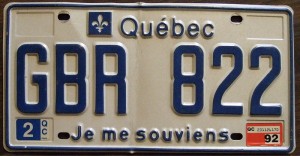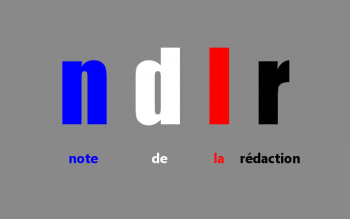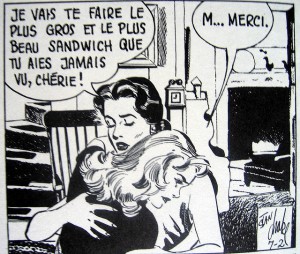Archive for 'Grammar'
Critics of the 2016 French Language Reforms Posted by Elizabeth Schmermund on Feb 8, 2016
As Josh detailed last week on the French spelling reform, the recent declaration by l’Académie française to implement spelling spelling changes that affect around 2,500 words was met with some resistance. Francophones (and Francophiles) have taken to twitter not only with the hashtag #JeSuisCirconflexe, but with examples of how the circumflex accent changes the meaning…
An Onion without an I – The French Spelling Reform Posted by Josh Dougherty on Feb 4, 2016

Anyone who has heard French can tell you it’s a beautiful language. Anyone who has written French can tell you it’s freaking difficult at times. Yes, those lovely sounds are accompanied by a complicated spelling system filled with silent endings, stem-changing verbs, hyphenation, elision, and doubled letters – and, of course, there are exceptions to…
The Ultimate Transparent French Blog 2015 Year in Review Quiz Posted by Josh Dougherty on Dec 31, 2015
Well, 2015 is all over. Tonight people all over the world will be bringing in the new year and celebrating another completed year. It’s been a busy and productive year for all of us at Transparent, and we’re looking forward to more fun and interesting articles in 2016. A few weeks ago, John presented the…
French Accents Posted by Elizabeth Schmermund on Dec 14, 2015
Accents are essential to correctly using the French language, but for those of us who aren’t familiar to writing with accents, they can be very tricky indeed. In French, the pronunciation and meaning of a word can change with or without an accent. Sometimes, accents aren’t included when the French type online…but that’s another story…
Have a Hair-Raising (ébouriffant) Halloween! Posted by Elizabeth Schmermund on Oct 26, 2015
“Hair-raising” is a great adjective in English. It’s descriptive and makes you understand exactly what it conveys…a fright that makes your hair stand up on end. Some dictionaries offer “terrifiant(e)” as the French translation of “hair-raising.” Another translation–and perhaps one that is more accurate–is “ébouriffant(e).” Neither of these words, however, are as descriptive as the original…
Editor’s Note: Understanding Acronyms and Abbreviations Posted by John Bauer on Oct 21, 2015
French uses many sigles (acronyms) and abréviations (abbreviations) in everyday writing beyond textspeak. There are many in English aussi (as well) that people don’t think about very often: etc, eg, ie, PS, and many more. I was reading an article en français (in French) and I came across un sigle that I couldn’t understand: Ndlr…
Super Scary…Superlatives (2) Posted by Elizabeth Schmermund on Oct 19, 2015
Last week, I went over French superlatives using the formula le/la/les + plus/moins + adjective/adverb, as well as some irregular superlative forms (le/la meilleur/e). To use the superlative form of bon in order to say that something is “the best,” you would use le/la meilleur(e). For example: Notre-Dame de Paris est le meilleur livre de Victor Hugo. (The Hunchback of…







